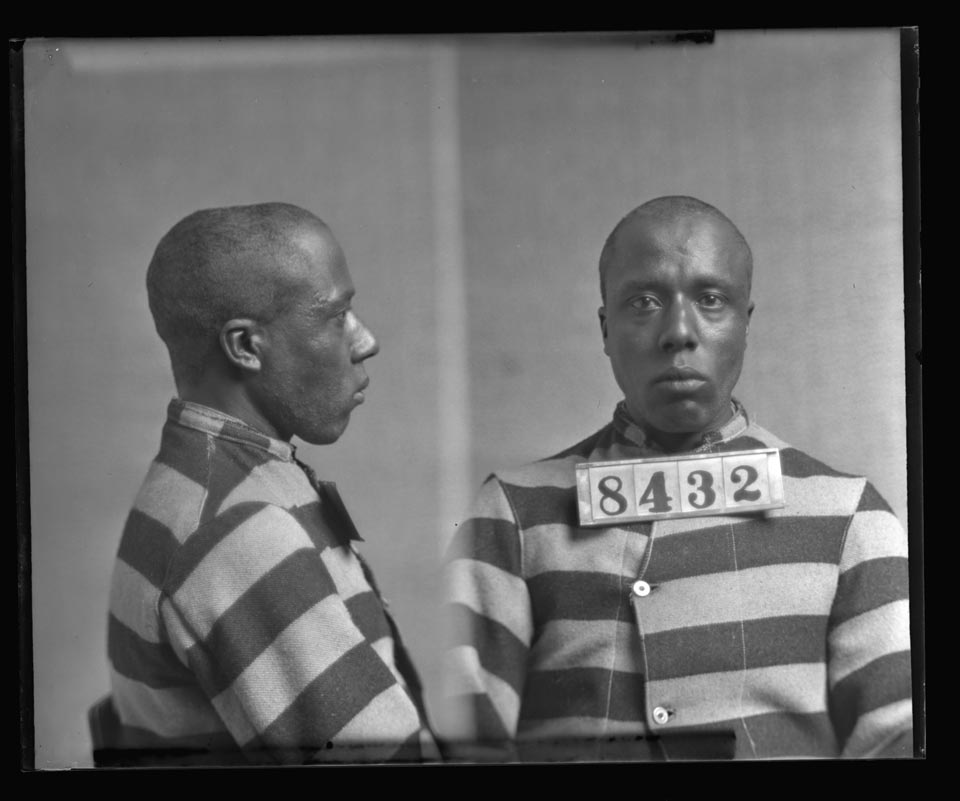This is the latest entry in a series of posts highlighting the records of the Virginia Penitentiary. This month’s entries will spotlight early parole records. An 1898 Act of the Virginia General Assembly (amended several times) granted the Virginia Penitentiary Board of Directors power to parole prisoners if they met certain conditions. To be eligible the inmate must have served half his term, have not broken any prison rules for the two years preceding the date of one-half his term and the prisoner must have assurance of employment upon his discharge. In 1915, the Virginia Attorney General issued an opinion stating that any legislation limiting the power of the governor to grant clemency was unconstitutional.
On 30 January 1909, Ben F. Parker, a 30-year-old African American from Nansemond County, arrived at the Virginia Penitentiary to begin serving a three-year sentence for forgery. Parker was sent to work on the Bedford County road force operated by W.H. McMillan. He was a model prisoner. After serving half his sentence, Parker applied for a conditional pardon (parole) in August 1910. C.T. Allen, a farmer in Good View, Virginia, agreed to employ Parker on his farm for $6 a month for seventeen months. Allen also promised to “take a friendly interest” in Parker, “to counsel and advise him in which is good,” and to report to the Penitentiary Superintendent any conduct or behavior that would violate the conditions of his parole. Allen’s offer of employment was accepted with one caveat. The Penitentiary Board of Directors did not parole prisoners for less than $10 per month and board. Allen agreed to increase Parker’s compensation and the prisoner was paroled in September 1910.
The salary difference foreshadowed future conflicts between Parker and Allen. In a letter dated 24 October 1910 to Penitentiary Superintendent J.B. Wood, Parker states his employment for Allen is going well except that “his satisfaction is not very good on the money matters” as he had not been paid. Wood interceded on Parker’s behalf and he received his pay. Wood cautioned Parker that if he left Allen’s employment without the consent of the Superintendent, he would be in violation of his parole and could be arrested and returned to the Penitentiary to serve out the remainder of his sentence. By March 1911, Allen was no longer satisfied with Parker. He found him difficult to manage and threatened to return him to the Penitentiary. To avoid reincarceration, Parker made Allen a proposition: he would work on the Virginia Railway but pay Allen $10 a month. Allen agreed. In an 8 April 1911 letter to Wood, he added that “Ben is under my control just like he was when he was on my farm.” Wood responded three days letter. He stated that Allen had no right to Parker’s wages. “When you released him to work for the Railway Company,” Wood wrote, “you lost all control over him.” Wood added that “to take a convict and farm him out might be a serious matter if it were brought to the attention of the Authorities.” Parker was free to work on the railroad, Wood advised in an 18 April 1911 letter. Wood’s only request was for Parker to “let me hear how you are getting along until your time here expires.” There is no further correspondence from Parker in the collection.
Next week: Edmonia M. Peebles
-Roger Christman, Senior State Records Archivist






























It was interesting to read the small details of a historical parolee’s life in this brief article. Looking forward to more of these.